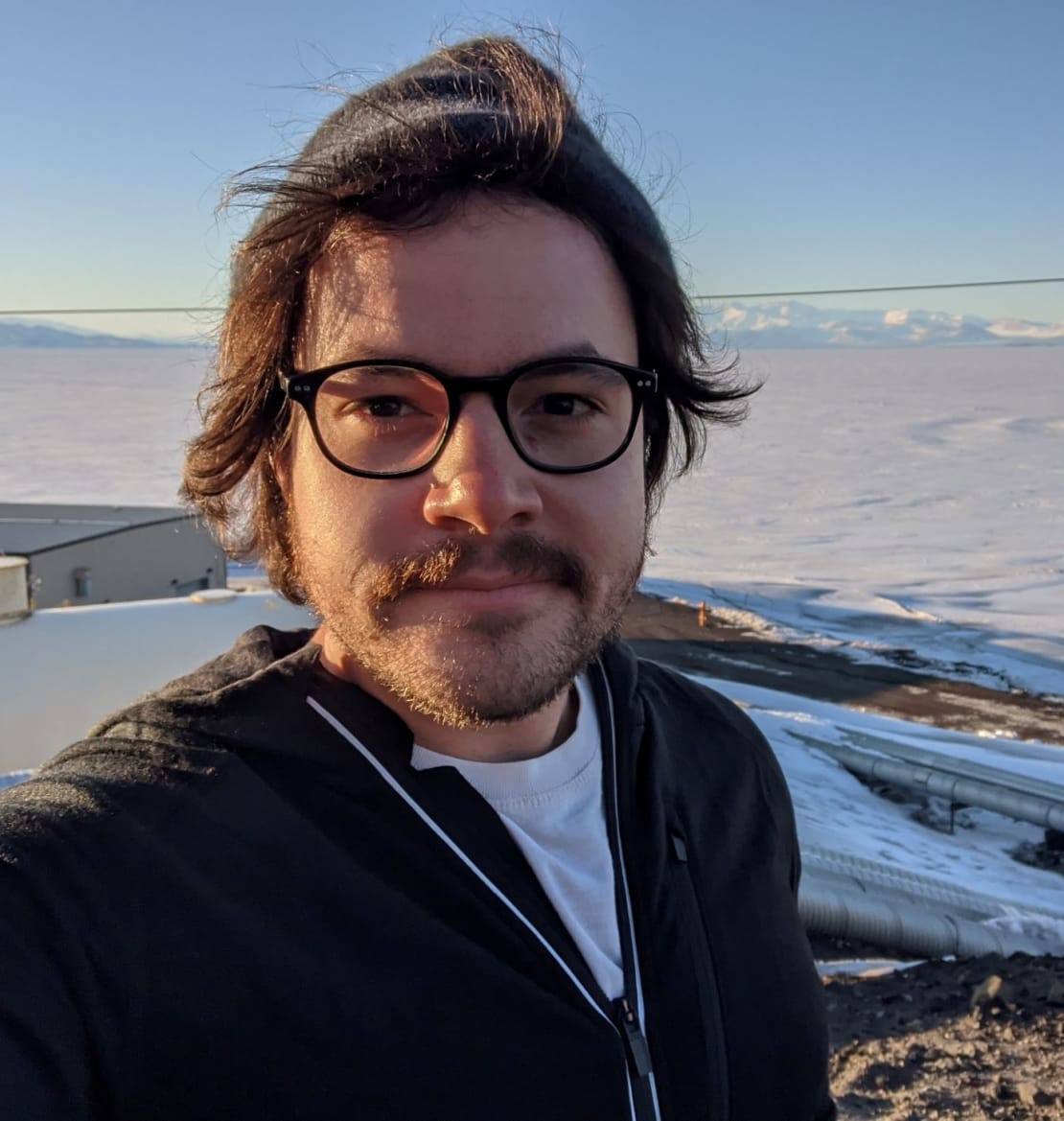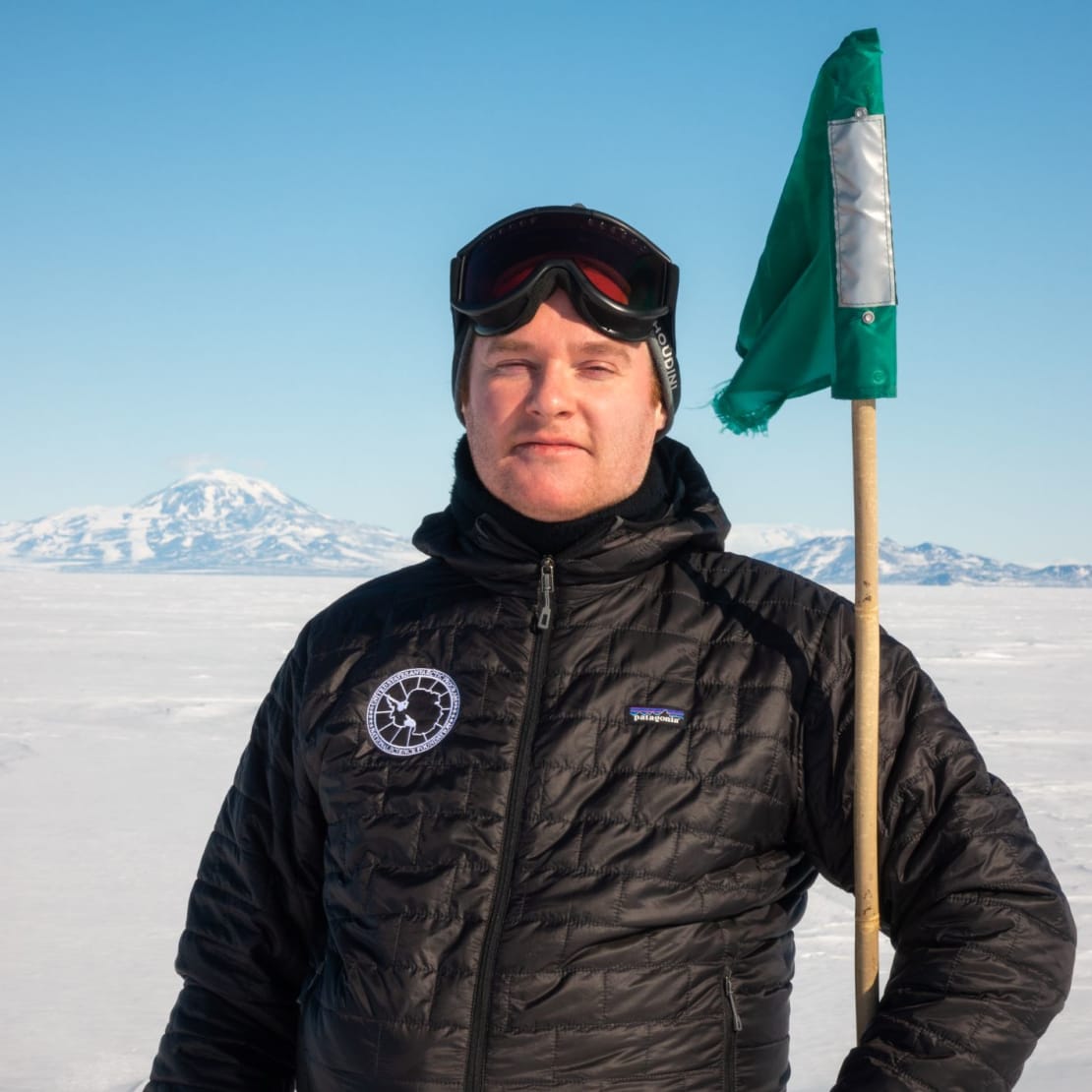With the coronavirus pandemic this year, people around the world are learning how to live in a new way. Restaurants, gyms, schools, museums, and offices have been closed; people have stopped seeing family and friends in person; and many leaders have asked their constituents to stay home to stop the spread of this deadly virus.
While this is new (and stressful) for most of us, every year a few dozen people choose to experience an isolated way of life—in the name of science!
They are the South Pole winterovers, an intrepid group of individuals who live and work at the bottom of the world for 12-13 months, including during the cold, sunless Antarctic winter. Since COVID-19 hasn’t reached Antarctica yet—and the U.S. Antarctic Program is following strict guidelines to keep it that way—the winterovers can interact with each other without masks and without distancing. It’s the ultimate self-isolated “bubble.”
About 40 cooks, medics, support staff, and scientists are now on their way to the Amundsen-Scott South Pole Station, a research facility maintained by the U.S. National Science Foundation. They will switch places with the 42 winterovers who have been living at the station since last November.
Since the IceCube Neutrino Observatory is also located at the South Pole, the IceCube Collaboration sends two winterovers down every year who have the special duty to keep the IceCube detector running smoothly.
This year, we are delighted to have one new winterover, Josh Veitch-Michaelis, and welcome back a veteran winterover, Martin Wolf. Due to the coronavirus pandemic, their training, which usually happens at the test site in Madison, Wisconsin, was moved online. Then, Josh and Martin began their journey to the South Pole, first traveling from their homes to Los Angeles where they spent two weeks self-isolating. After flying from LA to Christchurch, New Zealand, they spent another two weeks in self-isolation there, before continuing on to McMurdo Station, a U.S. Antarctic facility on the coast of the continent. Their next stop will be the South Pole.
Unlike in previous years, our current winterovers, John Hardin and Yuya Makino, will not be coming back right away. Since we cannot send our usual summer crew to the South Pole, who would normally help with maintenance activities and training for Josh and Martin, John will spend an additional two months at the Pole to assist with that transition. Yuya will return home more or less at the usual time in November or December.
Learn a bit about Josh and Martin in the Q&A below, then be sure to follow our weekly posts about life at the South Pole, adapted from the winterovers’ weekly reports.
Are you ready for a change of scenery yourself? Do you think you have what it takes to spend a year at the South Pole? IceCube is now accepting applications for our 2021-2022 winterovers! Find out more and apply at icecube.wisc.edu/jobs.

Josh Veitch-Michaelis
Hometown: Swindon, Wiltshire, UK
Job and institution before this one: Postdoc at Liverpool John Moores University in the Astro-ecology group. I spent the last couple of years building camera systems for drones used in conservation science.
How many continents have you been to (not counting Antarctica)? Four. Hopefully we’ll be able to visit New Zealand properly after we leave Antarctica, then I’ll only have South America left.
Why did you apply for this opportunity? I had known about IceCube tangentially, and I always wanted to work in Antarctica, but I never seriously looked for jobs. My girlfriend forwarded me the ad on Twitter. It looked like a great fit, the timing was right this year, and here I am!
What do you expect life to be like at the Pole? Varied! There seem to be a lot of things to distract us while we’re keeping the detector running.
What are you most looking forward to doing at the South Pole? Aside from stargazing, I’m looking forward to meeting the other folks at Pole and taking part in all the traditions (like watching “The Thing”). There are also lots of other research experiments at the Pole, and I’d like to learn more about those, too.
Least looking forward to? When we start to run out of fresh food…
What do you think you will miss the most about life up north? Aside from my family, I used to live (almost) inside a park, so I’ll miss living surrounded by trees. Also, long showers.
What is one goal you have for your time at the South Pole? I have an over-ambitious to-do list… but to pick one? I’d like to practice the piano more regularly and I’ve brought plenty of sheet music with me. Or lose the weight I’ve put on in isolation.

Martin Wolf
Hometown: Augustusburg, Saxony, Germany
Job and institution before this one: Postdoc researcher for IceCube at Technical University of Munich (TUM) in Germany.
How many continents have you been to now (including Antarctica)? Technically, I have been to all continents. For Africa, I also count the Canary Islands, because technically they are part of the African continent.
Why did you apply for this opportunity…again? My contract at TUM approached its end, and being able to escape SARS-CoV-2 for a year and have an actual safe social life seemed like a good idea. In addition, the night sky at South Pole is just incredible, and I missed the auroras. In general, I like the cold more than the hot. So escaping global warming was just another good reason.
What surprised you about life at the Pole last time? That it’s possible to talk about different things every day even if you see only 40 people an entire year long. Of course, some repetition can’t be avoided.
What are you most looking forward to doing at the South Pole? Going to the gym and the sauna. Also taking incredible pictures of the night sky with awesome aurora sky displays.
Least looking forward to? Walking across the entire detector four times a year to conduct IceTop snow measurements. It’s a real hard and cold job, but has to be done. Sauna is definitely a must afterwards.
Are you preparing differently this time than last time? Not really. But if you count the at least five weeks of self-isolation before actually reaching South Pole, I guess that’s quite different this year.
What is one goal you have for your time at the South Pole? I plan to lose weight by hitting the gym regularly. Last time I managed to lose 20 lbs. Hopefully that will be possible again.